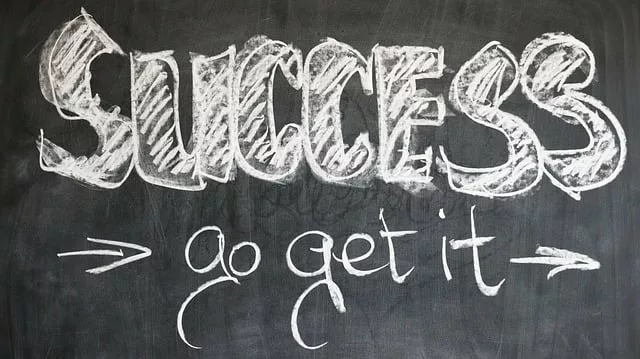Mistakes are often seen as failures. They carry a stigma, especially in professional circles, where precision and success are celebrated, and missteps are quietly buried or harshly criticized. Yet, if we examine the essence of innovation, growth, and learning closely, we find that mistakes are not just inevitable. They are essential. The quote “Anyone who has never made a mistake has never tried anything new” speaks a truth that resonates across industries, generations, and lives. It is not simply a nod to resilience, but a call to embrace experimentation.
The fear of making mistakes holds many people back. It prevents aspiring entrepreneurs from bringing their ideas to life. It stops professionals from speaking up in meetings. It keeps creators from publishing their work. In the realm of affiliate marketing and any entrepreneurial path, fear of mistakes can become the silent killer of momentum. Those who succeed do so not because they avoid errors but because they learn from them.
Trying something new means stepping into unfamiliar territory. It means moving beyond what is comfortable, predictable, and controlled. Mistakes become the markers that show you are exploring, not stagnating. And with each mistake, you gain knowledge that refines your path, strengthens your strategy, and builds your resilience.
In this article, we will explore why embracing mistakes is a crucial part of growth, how to shift your mindset around failure, and how the willingness to try new things can accelerate success in ways you might never expect.
The Value of Trying Something New
The desire to try something new is rooted in curiosity. It pushes you to explore what lies beyond your current capabilities and experiences. It drives innovation, unlocks creativity, and leads to breakthroughs. Yet trying something new is also risky. You cannot guarantee success. You expose yourself to criticism, judgment, and setbacks. But the risk of trying is always less dangerous than the risk of standing still.
In professional life, especially in digital marketing and entrepreneurship, trying something new is not a luxury; it’s a necessity. Algorithms evolve. Consumer behavior changes. Technology advances. What worked last year may no longer yield the same results. Those who cling to the familiar fall behind. Those who adapt, even clumsily at first, find new opportunities.
The process of trying leads to discovering. You begin to see patterns. You understand what your audience responds to. You recognize what builds trust, what converts, and what needs to improve. None of that insight comes without first being willing to make mistakes.
Many successful affiliate marketers started by failing. They launched the wrong product, chose the wrong niche, or struggled to understand their audience, but they persevered. They paid attention and they adjusted. That willingness to experiment laid the groundwork for long-term success.


Redefining Mistakes as Feedback
The word “mistake” often implies something negative. But when you examine it through the lens of learning, a mistake becomes feedback. It is data and an indicator that your approach needs tweaking. That kind of insight is priceless.
Think of a scientist running experiments. Each trial that does not produce the desired result is not a failure; rather, it is an opportunity for improvement. It is a discovery, and it rules out a method that does not work, bringing the scientist closer to the solution. The same principle applies to business, relationships, personal development, and creative endeavors.
When you adopt the mindset that mistakes are feedback, you remove the emotion from them. You stop making them personal. You start treating them as part of the process. That shift creates freedom. It gives you the space to take risks, learn quickly, and improve faster than those who avoid failure at all costs.
In affiliate marketing, this means testing offers, headlines, landing pages, and traffic sources without expecting perfection. You analyze what works and what doesn’t. You optimize. And over time, you build campaigns that deliver consistent results.
The most reliable data often comes from what went wrong, not what went smoothly.
The Relationship Between Failure and Innovation
Every innovation has failure in its DNA. Think of some of the world’s most respected companies and creators. Before they succeeded, they failed. Often publicly and repeatedly. However, those failures provided them with the insight and edge that ultimately led to transformation.
Steve Jobs was fired from his own company. Oprah Winfrey was told she was unfit for television. Thomas Edison tested thousands of filament materials before inventing the lightbulb. In each case, the failure was not the end. It was the beginning of something better.
Trying something new invites failure, but it also creates space for brilliance. When you push beyond what you know, you unlock potential that was previously unreachable. You cannot innovate without risk, and you cannot risk without the possibility of mistakes.
That is why those who succeed at the highest levels tend to be the ones who failed the most, not because they lacked talent, but because they showed up more often. They iterated. They endured. In the process, they discovered what others had never dared to explore.

Why Playing It Safe Can Be Dangerous
There is a false sense of security in doing only what you know. It feels efficient. It feels responsible. But over time, it creates stagnation. You stop growing and noticing new trends. You become reactive instead of proactive, and eventually, the market passes you by.
In affiliate marketing, where new platforms, products, and tools emerge constantly, staying safe often means staying under the radar. If you always use the same format, promote the same type of offer, or rely on the same traffic source, your returns diminish. Your audience gets bored, and your brand loses relevance.
Risk does not mean acting recklessly. It means allowing room to test. To evolve. To pursue something more than what you already know.
Some of the most potent growth happens when you step outside your comfort zone and into a space where mistakes are not just possible but likely. That is where new skills develop and where bold ideas take shape.
The danger is not in trying and failing. The real danger lies in never trying at all.
Embracing a Culture of Experimentation
To succeed in a changing world, cultivate a personal culture of experimentation. View your projects as tests. Define success not by perfection but by progress. Measure learning as much as outcomes.
This culture helps you detach from ego. You stop tying your worth to flawless execution. Instead, you take pride in effort, adaptability, and persistence.
In a practical sense, this means setting up experiments in your marketing. Try a new platform, such as TikTok or Pinterest. Test different email sequences. Build content around a topic outside your usual scope. Watch what resonates. Track the data. Learn.
Let go of the need to “get it right” on the first try. Focus instead on learning something valuable from every attempt. Over time, this approach compounds. You become not just better at marketing, but better at thinking. Better at leading and better at creating.
How Resilience Shapes Success
Anyone who has never made a mistake has never tried anything new. But the other half of that truth is that anyone who has tried something new has had to build resilience. Because failure, rejection, and disappointment are part of the process.
Resilience is the ability to continue despite setbacks. It means showing up again after something flops. It means publishing another article after your last one was ignored. It means launching a new campaign even when your previous one underperformed.
Resilient people do not avoid difficulty. They expect it. They prepare for it. And when it comes, they use it to grow.
This mindset not only builds character. It builds credibility. People trust those who are honest about their journey. When you share your lessons, your audience sees you as real, not robotic. That trust becomes a decisive advantage in business and life.

Practical Application in Affiliate Marketing
The affiliate space is fertile ground for experimentation. There is no single formula. Different niches, products, and platforms exhibit distinct behaviors. What works for one creator might not work for another. That is why trying new things becomes not just optional but strategic.
Experiment with content types. If you have only blogged, try video. If you have only promoted products in your emails, try creating a lead magnet. If you have only worked with physical products, test digital services.
Track your data. Measure click-through rates, conversion rates, engagement, and return on ad spend. Let those numbers guide your next move. Each mistake becomes a piece of intelligence that informs your next step.
Remember, no affiliate marketer has built a successful business without making numerous mistakes. However, those who stayed in motion and kept adjusting eventually created systems that worked.
They succeeded not despite their mistakes, but because of them.
Progress Through Imperfection
The road to growth is paved with imperfect action. Waiting for the perfect moment, the perfect idea, or the perfect plan often results in a missed opportunity. Instead, the people who make progress are those who act while still uncertain. Those who try before they are fully ready.
Mistakes will happen. You will misunderstand an audience. You will pick the wrong tool. You will forget something critical. But each of these moments becomes a lesson. A signal. A stepping stone.
The key is to keep moving. Keep learning. Keep refining.
Progress is not linear. It moves in cycles. Sometimes you leap forward. Sometimes you stumble. But if you stay committed, your overall trajectory is upward.
Perfection is not the goal. Growth is.
Letting Curiosity Lead
At the heart of every new attempt lies curiosity. What if this works? What happens if I try? Could this idea resonate with others?
Let those questions lead you. Let them pull you into action. Curiosity creates energy. It dissolves fear. It reminds you that the outcome is only one part of the reward. The journey — the learning, the experience, the discovery — matters just as much.
The most fulfilled people are not those who made the fewest mistakes. They are the ones who explored the most possibilities. Who permitted themselves to try.
So go ahead. Launch the project. Send the email. Start the campaign. Learn a new platform. Talk to a new audience. Take the shot.
You will not get it all right. That is not the point.
The point is to grow. To expand. To move forward.
Because anyone who has never made a mistake has never tried anything new.
And you were made to try. Your journey is richer.
Because ignorance is not your enemy, it is your invitation. To learn. To grow. And to become who you were always meant to be.

